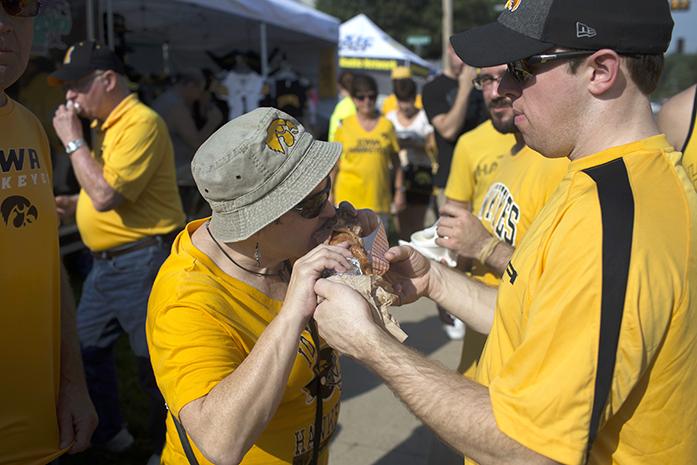By Natalie Betz
Beef consumption across the county has dropped, according to national research, and it’s helping to combat climate change.
According to a March report by the Natural Resources Defense Council, Americans consumed 19 percent less beef in 2014 than in 2005, eliminating an approximate 185 million metric tons of greenhouse gas emissions. The council is a New York City nonprofit international environmental advocacy group.The drop in beef consumption could be because some people are trying to help the climate, but it might also be because people are realizing that red meat can be harmful, said H.S. Udaykumar, a University of Iowa professor of mechanical engineering. He described it as a “happy coincidence.”
Some students, such as UI sophomore Logan Grant, became vegetarian for more personal reasons. She has been a vegetarian for five months after she realized that being an animal lover and supporting meat companies made her a hypocrite. Although she originally became a vegetarian because of ethical reasons, she soon learned about the environmental benefits.
Like Grant, Pete Akers, a UI visiting assistant professor of geography, noted that it isn’t usual for people to become a vegetarian because of the environment.
“Most people don’t typically switch to a vegetarian diet to initially help climate change, but a lot of people are consuming more sustainable foods with less carbon and methane emissions, which increases the ambit of food supply for everyone,” Akers said.
Additionally, he said, the amount of methane a single cow can produce with its four stomachs is extremely harmful to the planet. Methane has a greenhouse effect 25 times more powerful than carbon dioxide, according to the report.
“Cows, to a bigger extent, convert gas to methane,” Udaykumar said.
Akers said that pigs are a better choice over beef, because pigs require about eight to 10 pounds of grain to produce one pound of pork, rather than the 25 pounds of grain to produce one pound of beef, and the hundreds of gallons of water needed for the cow to grow.
Hog farming is a huge industry in Iowa. According to statistics, it alone represents $7.5 billion in total economic activity for Iowa. The numbers are based on the 2012 U.S. Census of Agriculture and analysis by the Spencer Parkinson of Decision Innovation and Iowa State University on the Iowa Pork Producers Association website.
Akers also said chickens are even better than pigs because they only need two to three pounds of grain to produce one pound of meat.
Additionally, there’s an “unreasonable effectiveness” of the Chick-Fil-A campaign stating that chicken is better for humans than beef, Udaykumar said.
“Farmed fish are the most efficient, and if people chose to order fish over beef, it would make a pretty big impact, largely because they’re cold-blooded and have different metabolisms,” Akers said. “Also, fish don’t have to burn energy to stay alive.”
But the decrease in beef consumption isn’t the only meat that could help climate change, he said. Essentially, all meat from fish to cattle is going to have a greater impact on climate change because of the extra steps needed to help the animals grow, he said.
The reason is that all animal products take far more land, water, and fossil fuels to grow, Udaykumar said.
Additionally, he said, Iowa land is used to produce biofuels for cars using corn and soy, and a significant amount is used to as animal feed, then what is left is used to produce food for humans.
The effect that this has on the environment is that the crops fill soils with chemicals, which run into rivers and eventually ends up in the ocean, killing fish, Udaykumar said.
Grant said she’s glad to be a vegetarian because the feed fed to animals is what humans ultimately end up consuming.
Akers said that if the trend of consuming less beef continues, there will be more land to designate for human food. Therefore, he said, there will be more food for humans, because now, so much land is used to grow animal feed.







